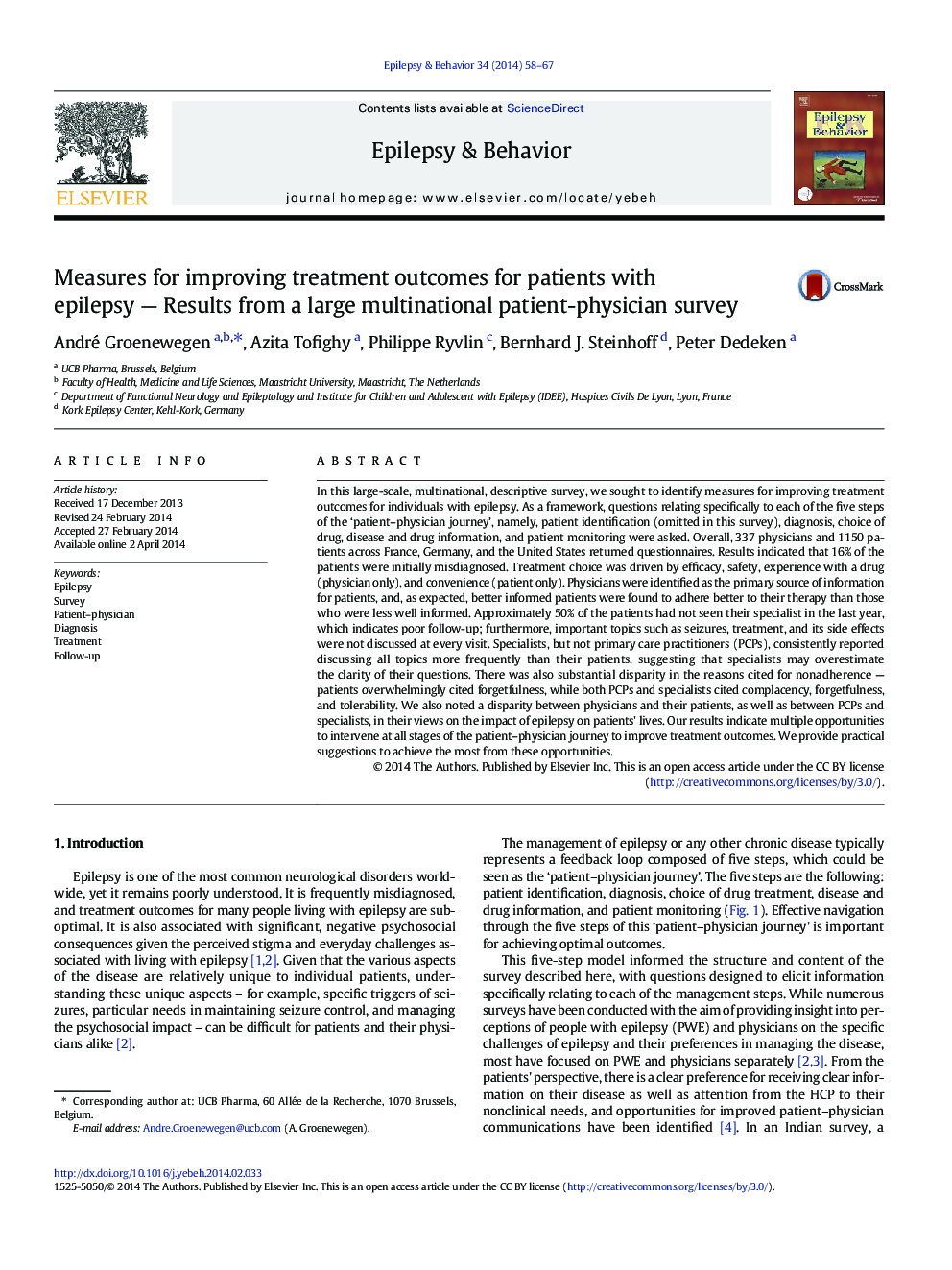| کد مقاله | کد نشریه | سال انتشار | مقاله انگلیسی | نسخه تمام متن |
|---|---|---|---|---|
| 6012337 | 1579855 | 2014 | 10 صفحه PDF | دانلود رایگان |

- Large multinational survey to identify measures for improving outcomes in epilepsy
- Matched responses from physicians and patients in France, Germany, and the US
- Treatment outcomes, side effects, and adherence and QoL insufficiently addressed
- Specialists overestimated the clarity of their questions and actual topics discussed
- Article contains pragmatic suggestions to improve outcomes for people with epilepsy
In this large-scale, multinational, descriptive survey, we sought to identify measures for improving treatment outcomes for individuals with epilepsy. As a framework, questions relating specifically to each of the five steps of the 'patient-physician journey', namely, patient identification (omitted in this survey), diagnosis, choice of drug, disease and drug information, and patient monitoring were asked. Overall, 337 physicians and 1150 patients across France, Germany, and the United States returned questionnaires. Results indicated that 16% of the patients were initially misdiagnosed. Treatment choice was driven by efficacy, safety, experience with a drug (physician only), and convenience (patient only). Physicians were identified as the primary source of information for patients, and, as expected, better informed patients were found to adhere better to their therapy than those who were less well informed. Approximately 50% of the patients had not seen their specialist in the last year, which indicates poor follow-up; furthermore, important topics such as seizures, treatment, and its side effects were not discussed at every visit. Specialists, but not primary care practitioners (PCPs), consistently reported discussing all topics more frequently than their patients, suggesting that specialists may overestimate the clarity of their questions. There was also substantial disparity in the reasons cited for nonadherence - patients overwhelmingly cited forgetfulness, while both PCPs and specialists cited complacency, forgetfulness, and tolerability. We also noted a disparity between physicians and their patients, as well as between PCPs and specialists, in their views on the impact of epilepsy on patients' lives. Our results indicate multiple opportunities to intervene at all stages of the patient-physician journey to improve treatment outcomes. We provide practical suggestions to achieve the most from these opportunities.
Journal: Epilepsy & Behavior - Volume 34, May 2014, Pages 58-67